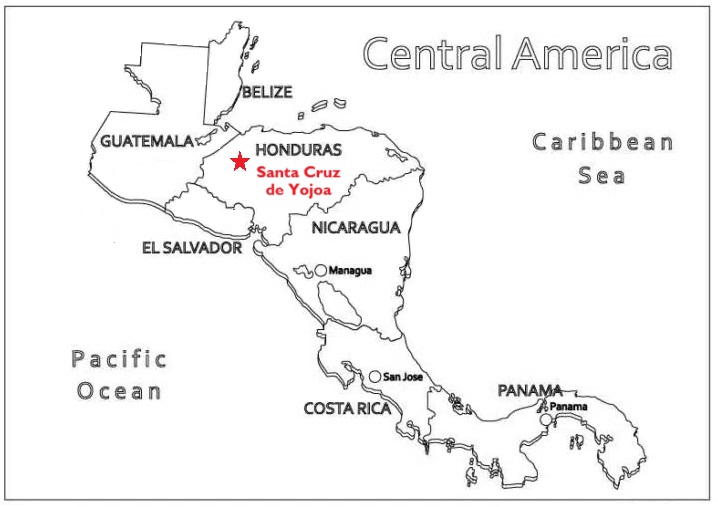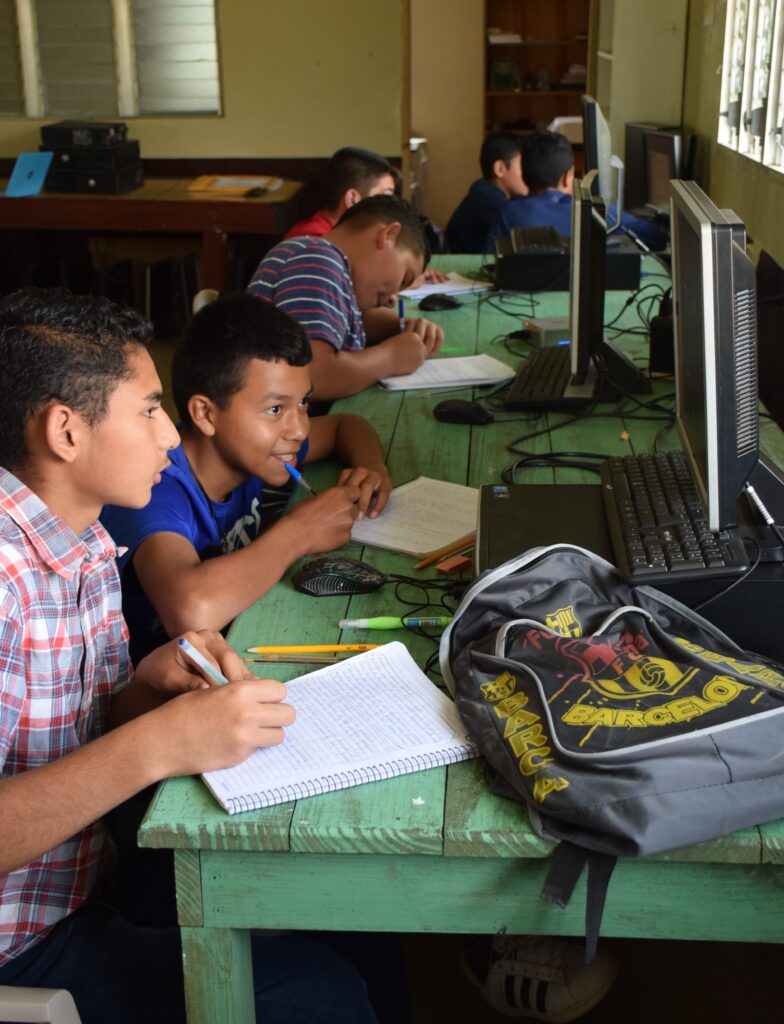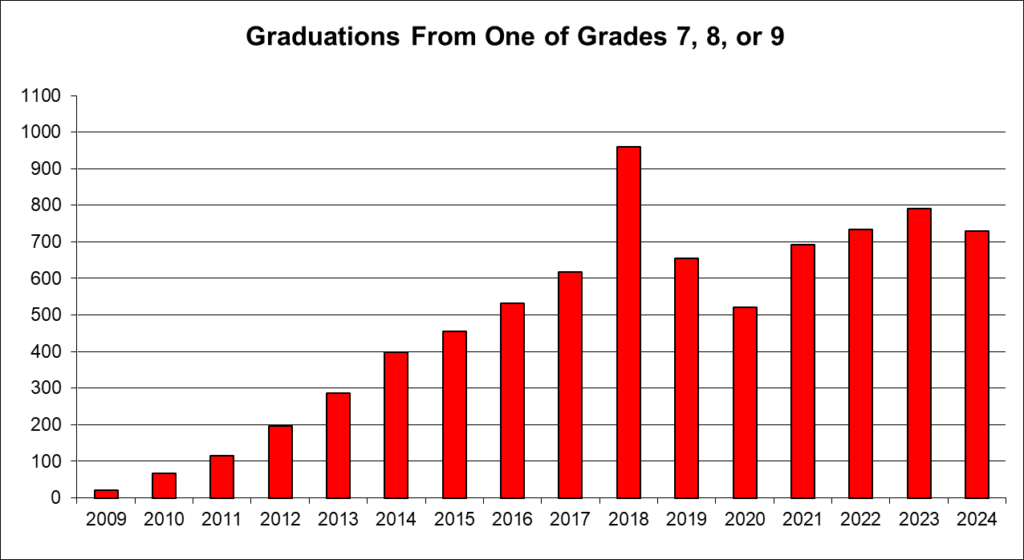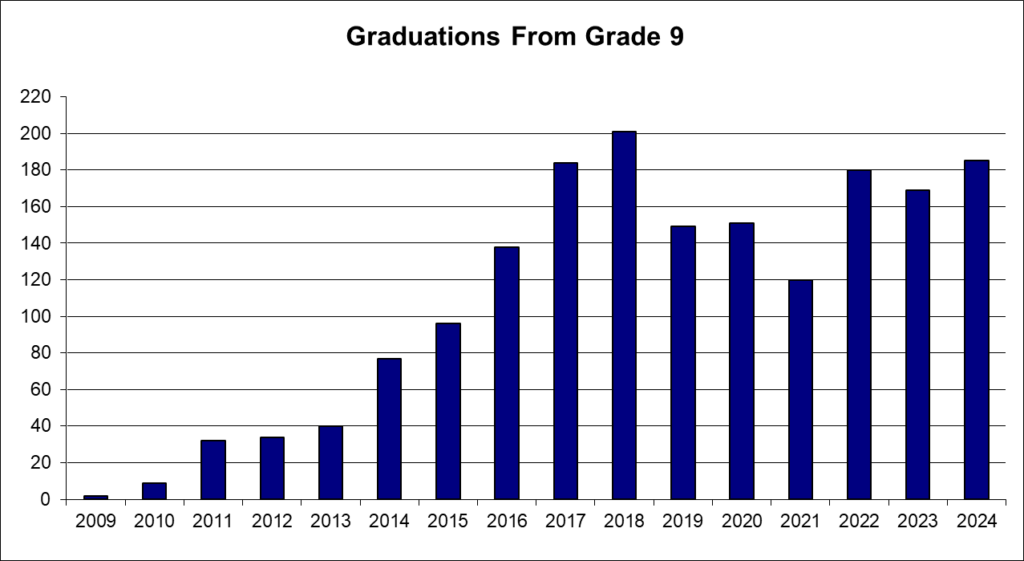Location: Honduras
Start Date: 2009
Partners: Asociacion Confraternidad Honduras (ACH)

Schooling in most rural Honduran villages ends at Grade 6, usually because parents cannot afford to send their children to junior high school away from home. For example, the dropout rate between Grades 6 and 7 in the Municipality of Santa Cruz de Yojoa has been as high as 96%, according to the local Superintendent of Schools
Computer Assisted Learning (CAL) is an inexpensive and effective way of providing basic education in developing countries. A digitized curriculum is installed on computers, which are used by students to learn at their own pace. After completing the curriculum, a student is eligible to take the national exams for graduation to the next grade.

Project Goals
To remove barriers that prevent children from continuing their education beyond grade 6
To provide quality education for grades,7 8 and 9 following the Honduran Curriculum
To provide supplementary materials such as reading materials, reference books and a keyboarding program
To provide access to primary education for people of any age who are illiterate or have not been able to complete primary school
Sombrilla’s Computer-Assisted Learning program for Junior High School in Honduras was started by Canadian Peacemakers International in 2009, and administered by our partner organization Asociación Confraternidad Honduras (ACH) since 2013. In 2023 the project was transferred from CPI to Sombrilla.
The main campus and administration centre (indicated in Red) is located in the town of Santa Cruz de Yojoa, about 80 km south of San Pedro Sula, the country’s second largest city. As of 2023, satellite schools (indicated in yellow) have been established in 33 communities, most of which are in western Honduras. The Learning Centres are staffed by technicians who assist students in accessing the curriculum and learning resources on computers.
On each computer, as well as the curriculum for grades 7,8 and 9 there is:
- A digital library of over 500 titles provides reading materials for students. This library has a deliberate peace bias, with stories that promote peace and conflict resolution without resorting to violence. Many of the stories selected for inclusion in the library have been illustrated by ACH staff. For readers who have had little access to stories, these illustrations make reading more enjoyable.
- Reference books such as a dictionary, the Encyclopedia Encarta and the Encyclopedia of Honduras, an atlas, and the Spanish version of “Where There Is No Doctor: A Village Health Care Handbook.”
- A self-instructional typing/keyboarding program to help students learn to use the keyboard efficiently.
- The curriculum for Grades 1 to 6 for illiterate people who want to learn to read.
- A GED preparation manual for people who wish to challenge the GED exams to get a high school diploma.
The ACH Philosophy is Education for All. Barriers to accessing education have been removed in these ways:
- The only condition ACH places on students who wish to enroll in the CAL program is that they have completed Grade 6.
- A commitment to the idea that education should be available to all, even those from the poorest families. The only fee associated with CAL is a $15 graduation fee at the end of each year. Any students who cannot afford the fee can do community service work in lieu of payment.
- There is no dress code. The cost of uniforms if a common barrier to school attendance in Honduras.
- Attendance is voluntary and ACH does not maintain attendance records. Students come to study without coercion on the part of the learning centre. A student missing a day or a week of study will resume at the place they left off before their absence. Similarly, students who drop out are able, when they return, to resume their studies at the point where they left off.
- There is an open admission policy. Students can enroll at any time of the year and are not restricted to a fixed start date.
The main school in Santa Cruz de Yojoa, Instituto Centro de Enseñanza Fraternidad (CEF), is registered with the Honduran Ministry of Education. This gives the school official status and the right to do certain things with the curriculum and educational delivery. It also gives the CEF the right to award graduation certificates. CAL graduates who have used the downloaded materials pay a graduation fee of HNL 300 (about C$17) to help offset some of the costs of the program.
Project Impact: Student Stories – Click Here


